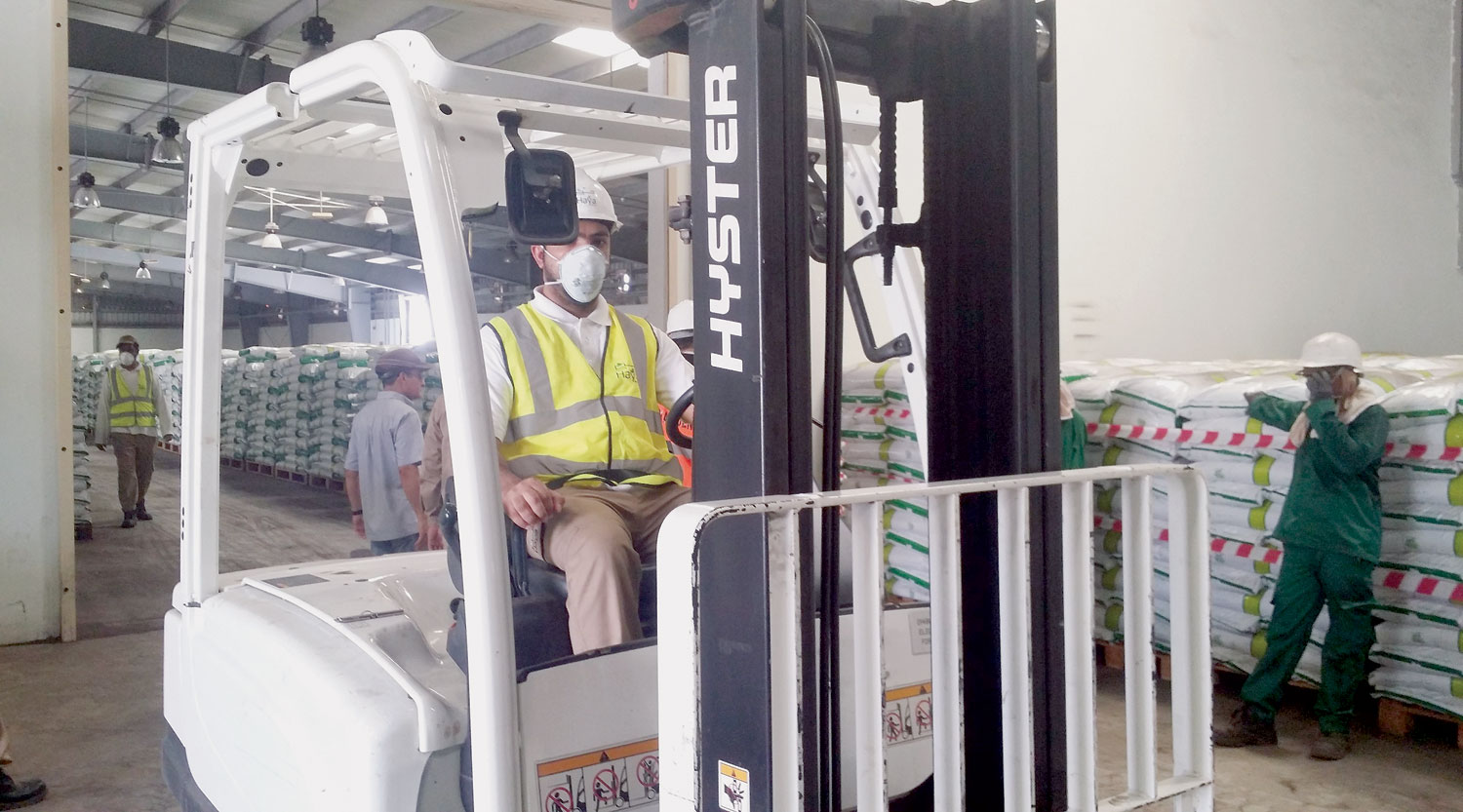

Muscat, Dec 19 - Farmers are praising the quality of the organic compost ‘Kala’ and urging other farmers to use it for cultivation. Saif bin Ali bin Saif al Deghishi, from the Wilayat of Samayil, said: “Through my experience of using Kala compost for several years, I’m confident this fertiliser has many advantages, including the fact that no weeds grow when using kala and it preserves the soil’s moisture.” “It is certain that, when using Kala, some vegetables such as zucchini, pumpkin and other crops cannot be harvested for several reasons, including the lack of suitable soil for growing such crops. However, I have observed that, when composting the land with Kala, the harvest of these vegetables increased.”
Saif al Deghishi uses Kala to grow tomatoes, onions, garlic and radish, and “I always get a good harvest”. “I urge other farmers to use it, especially since it is an Omani product.”
Abdul Rahman bin Zahran al Abri from Wilayat of Bahla said Kala is very beneficial for agriculture and weeds do not grow when fertilising the soil. “I have found Kala is one of the best fertilisers I have tried especially with palm trees.”
Hilal bin Khalfan al Dhakhry, General Manager of Business Development and Customer Services in Haya Water, said Haya came up with the idea of recycling wastewater mixed with green residues (leaves, branches of trees) and horse dung, and then reusing the final product as an organic fertiliser.
He said that in 2010, Haya Water established the Kala compost plant as part of its efforts to protect the environment.
Hilal said since the establishment of Kala plant, the production has been continuously increasing with the total sales exceeding 400,000 bags in 2016. Since the commencement of commercial production in 2011, the plant has produced more than two million bags of Kala compost.
Kala plant has been accredited by the United Nations Development Program (CDM). It is the first organic fertiliser plant in the Middle East to receive such a certificate.
Haya Water, in collaboration with Sultan Qaboos University, conducted a scientific research 2013 to 2015 to study the effects of Kala compost on crops. The results proved there is no accumulation above the normal level in terms of concentration of heavy elements or harmful germs in the soil.
The study indicated Kala increases the fertility of the soil and improves the ability of the soil to retain water. It also provides plants with many types of nutrients, which increases the quantity and quality of various agricultural crops.
Oman Observer is now on the WhatsApp channel. Click here



